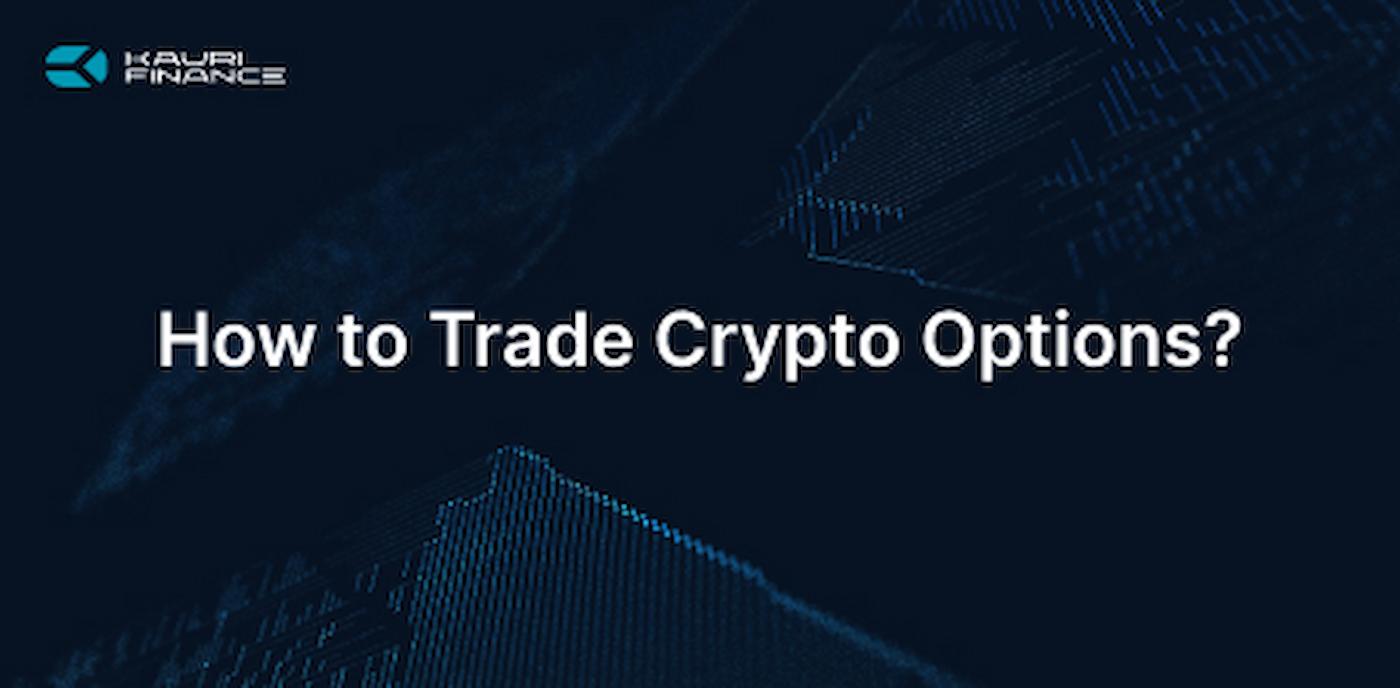
How to Trade Crypto Options?
- How To Buy and Sell Bitcoin Options
- How To Trade Bitcoin Options
- Best Options Trading Platforms
- Risks To Watch for When Trading Bitcoin Options
- 1. Volatility
- 2. Scams and Frauds
- 3. Liquidity
- What You Need To Open an Options Trading Account
- Personal Information
- Minimum Deposit
- Can You Trade Options on Crypto Exchanges?
- Conclusions

Bitcoin options represent financial contracts that allow investors to bet on the price of the cryptocurrency using leverage or protect their digital asset holdings from price fluctuations. These options are accessible on both conventional derivatives exchanges and crypto trading platforms, attracting seasoned crypto traders due to their popularity and potential profitability.
For individuals venturing into Bitcoin options trading, selecting a reliable trading platform with sufficient liquidity and robust security measures is crucial. In this comprehensive guide to Bitcoin options trading, we cover the fundamentals every aspiring option trader should grasp, addressing common queries encountered by novice traders.
How To Buy and Sell Bitcoin Options
Let’s start from understanding Bitcoin Options. Options are a type of financial contract that lets you buy or sell a certain amount of an asset at a set price on a specific future date, but you don't have to go through with it if you don't want to. When it comes to Bitcoin options, you're dealing with Bitcoin (BTC) as the asset. Even though the market for cryptocurrency options is relatively new, you can already trade options for Bitcoin and Ethereum on several traditional stock exchanges and various crypto trading platforms.
From a technical standpoint, cryptocurrency options work much like options contracts for stocks, indexes, or commodities. However, crypto options tend to be less liquid than those for major stock indexes or commodities like gold. This is because the cryptocurrency market is still much smaller compared to traditional investment markets.
The next question is how to trade crypto options. Here is a short guideline:
- Sign up and onboard with a crypto exchange renowned for offering options trading. Research thoroughly to find the best crypto options trading platforms that suit your needs.
- Devise an options trading strategy. Successful options traders typically don't rely on luck but instead have a well-defined strategy rooted in a deep understanding of the market and its dynamics. This involves grasping the factors influencing crypto prices and adeptly interpreting crypto charts for market analysis.
- Once you've formulated your strategy, it's time to open your positions. Many investors opt to diversify their positions by opening multiple positions in opposite directions, which can help mitigate potential losses.
- Monitor the market. Even seasoned investors can encounter unexpected market movements. Regularly monitor your positions, track your gains or losses, and be prepared to adjust your strategy accordingly. Knowing when to cash out and close your position is essential for managing risk effectively.
How To Trade Bitcoin Options
Opening an Options Trading Account
Best Options Trading Platforms
|
Platform |
Specific |
Account Minimum |
Fees |
|
Broker for Beginning Options Traders |
$0 |
$0 for stock/ETF trades. Options are $0.50 to $0.65 per contract, based on trading volume. |
|
|
Broker for Advanced Options Traders |
$0 |
For equities and ETFs, IBKR’s TWS Light offers $0 commissions. For active traders seeking advanced features like order routing, costs scale with volume. Options on TWS Light cost $0.65 per contract, which is also the base rate for TWS Pro users, with volume-based scaled rates. Futures trading costs $0.85 per contract. |
|
|
Options Trading Platform |
$0 |
$0 stock trades, $1 to open options trades (capped at $10 per leg), and $0 to close options trades. |
|
|
Broker for Low-Cost Options Trading |
$0 |
$0 commissions for trading stocks, ETFs, options, and cryptocurrencies, with a small markup included in the pricing. |
Risks To Watch for When Trading Bitcoin Options
1. Volatility
One of the biggest risks in crypto trading is market volatility. Cryptocurrency prices can change dramatically in a very short time. Between January 2019 and December 2021, there were nine instances when the total crypto market value plummeted by 20% or more in just one day. The most significant losses typically occur during periods of high risk aversion in the market.
To manage volatility in crypto trading, it's crucial to widen your risk levels. While using a stop loss is still advisable, it's important to account for the heightened price swings in cryptocurrencies when setting your stop level. Additionally, consider reducing your position size to lower the overall risk of each trade.
2. Scams and Frauds
The crypto market operates largely without regulation, leaving investors vulnerable to cybercrime with little recourse. Scams can take various forms, such as investing in projects that offer no real value, only to see them collapse, rendering your investment worthless. Additionally, hackers may target your digital wallet or exchange accounts to steal your cryptocurrency holdings. To safeguard your capital, it's essential to remain vigilant. Be wary of projects promising unrealistic profits or outcomes that seem too good to be true—they could be scams. Before investing, thoroughly research the trading platforms and institutions where you plan to open accounts. Check if they are regulated and look into feedback from other users to gauge their reputation and reliability.
3. Liquidity
Liquidity, often overlooked, poses a sneaky risk in crypto trading. Put simply, liquidity refers to your ability to buy or sell an investment without causing significant price movement. Imagine you want to invest in a cryptocurrency project, but there aren't many sellers matching your buying size. In this case, the market price would need to rise to attract more sellers. Conversely, if you're looking to sell a large position, there must be enough liquidity to accommodate your sale. Otherwise, the cryptocurrency price could plummet. Liquidity levels fluctuate based on various factors like time of day, day of the week, the cryptocurrency's size, and the exchange or broker you're using.
Generally, larger and more popular cryptocurrencies like Bitcoin or Ether boast higher liquidity. This means it's easier to execute large trades without significantly impacting the market price. However, smaller-cap cryptocurrencies and altcoins often have limited liquidity pools. Consequently, prices may exhibit more erratic movements when significant orders enter the market. To navigate potential liquidity constraints, traders commonly divide large trades into smaller sizes and execute them separately over time. By spreading out trades, the market can better absorb the trading volume, minimizing price disruptions.
Many people tend to think that options are riskier than spot trading. Options trading can indeed carry higher risk compared to spot trading in crypto, but it's not a blanket statement. It ultimately hinges on how options are utilized. Options offer risk management capabilities, but they also introduce complexities that can amplify risk if mishandled.
Understanding the risks associated with crypto options trading is crucial before diving in. Time decay, where the value of an option diminishes as it nears expiration, and costs like trading fees and margin requirements can significantly impact your returns. Remember, only invest what you can afford to lose.
What You Need To Open an Options Trading Account
Personal Information
To kick off your options trading journey, you'll need to gather some personal information. Most crypto options trading platforms will ask for your:
- full name,
- email address,
- phone number,
- home address.
As part of the Know Your Customer (KYC) process, you'll likely need to provide scanned copies of your government-issued ID and proof of address, like a utility bill. Additionally, be prepared to answer questions about your trading experience to access derivatives trading products.
Minimum Deposit
While crypto exchanges often have low minimum deposits, typically around $10 to $20, trading Bitcoin options requires a bit more capital. Even the most affordable BTC options contracts come with premiums of over $10. So, if you're diving into Bitcoin options trading, be prepared to invest more than just a dollar.
Can You Trade Options on Crypto Exchanges?
Certainly, not all exchanges offer Bitcoin options, but many digital asset exchanges do provide crypto derivatives, including options for Bitcoin. Prominent examples include Bybit, Deribit, and OKX. These platforms offer a range of BTC options contracts with different strike prices and expiration dates, empowering crypto traders to implement diverse options trading strategies.
The three main types of cryptocurrency exchanges are centralized, decentralized, and hybrid.
- Centralized Exchanges: These platforms operate similarly to traditional online brokerages, allowing users to trade various cryptocurrencies after registering and completing KYC verification. Users can buy and sell digital assets through these exchanges, which function as intermediaries between buyers and sellers.
- Decentralized Exchanges: Decentralized exchages (DEXs) operate on blockchain technology and smart contracts, enabling peer-to-peer trading of cryptocurrencies. Users can trade directly from their wallets without the need for an intermediary. DEXs offer increased privacy and security, as users retain control of their funds and don't need to undergo a KYC process.
- Hybrid Exchanges: Hybrid exchanges combine elements of both centralized and decentralized exchanges. They feature a centralized order book for matching trades but offer decentralized custody of crypto assets. This setup allows users to enjoy the liquidity and user experience of centralized exchanges while benefiting from the security and control provided by decentralized solutions.
Conclusions
Crypto options trading can offer significant opportunities for navigating the volatile crypto market and maximizing potential profits. By grasping the fundamentals of options trading and implementing effective strategies, you can leverage market fluctuations to your advantage. However, it's crucial to conduct thorough research and stay updated on the latest trends and developments in the crypto space. While crypto options trading can be lucrative, it also carries inherent risks. Therefore, it's essential to approach it with caution and patience, ensuring that you fully understand the risks involved and have a well-thought-out trading plan in place.
